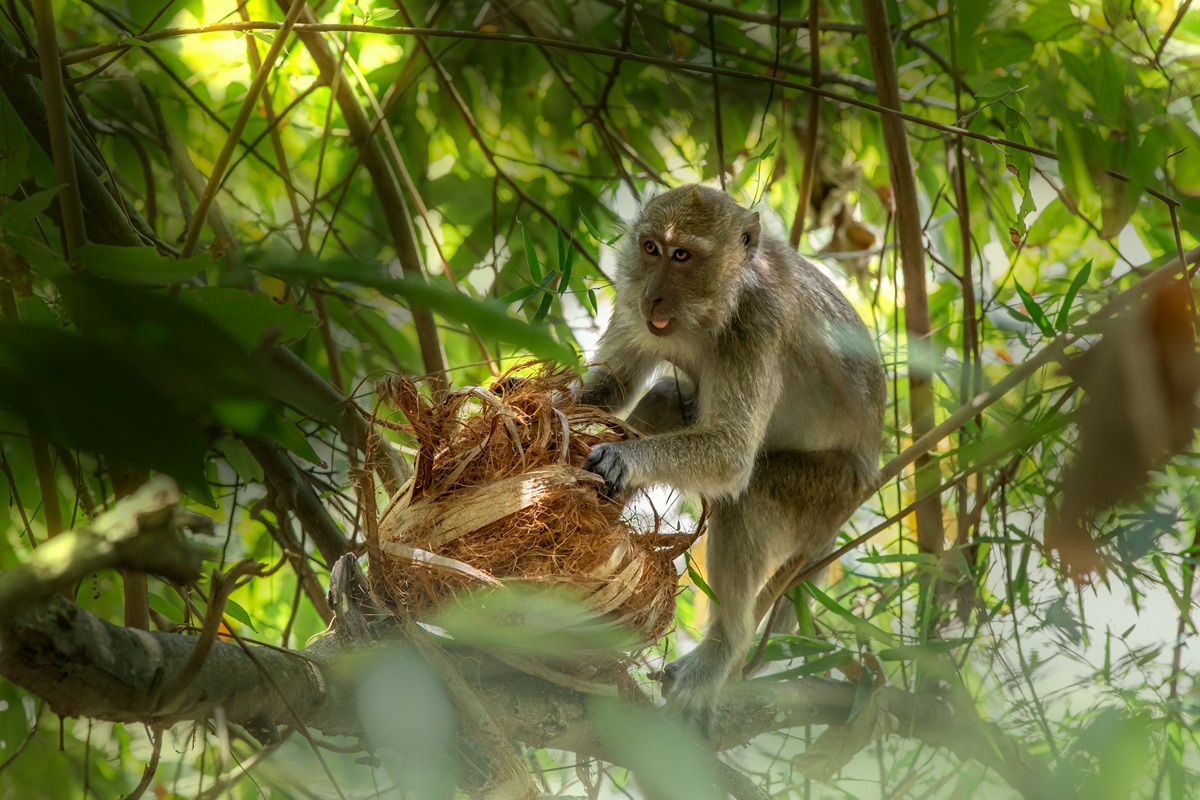Companies, animal rights groups agree to stop the use of coconut-picking monkeys in Thailand
In Thailand, the lucrative coconut market relies on the exploitation of more than 3,000 specially trained monkeys of endangered species. An international boycott campaign against the mistreatment of these animals is driving producers to adopt new systems.
Milan (AsiaNews/Agencies) – Thailand is among the world's largest coconut exporters, but this sector is under fire from several animal rights groups: often, a large portion of the coconuts are harvested by specially trained monkeys of two species.
These monkeys are Northern and Southern pig-tailed macaques; trained to climb trees, they pluck coconuts and drop them to the ground where they can be easily picked up.
Overall, the coconut market generates over 25 billion baht (around US$ 765 million) for the country each year, and is expanding, as many consumers increasingly choose to replace cow's milk with plant-based options, including coconut milk (an estimated 80 per cent of this product comes from Thailand).
The use of macaques for harvesting has a long tradition in the country. In 2020, however, an animal rights organisation, the People for the Ethical Treatment of Animals Foundation United Kingdom (PETA UK) published a report describing the appalling conditions of the harvesting macaques, specifying that they work six to hours a day, during which they harvest between 500 and 1,000 coconuts.
Since then, the controversy has grown even though the number of macaques employed has decreased, from about 15,000 15 years ago to 3,000 today.
Vincent Nijman, professor of anthropology and director of the Oxford Wildlife Trade Research Group at the University of Oxford, has studied the welfare of coconut-picking macaques in Thailand, noting that the northern pig-tailed macaque is classified as vulnerable on the International Union for Conservation of Nature's Red List, while southern one is in danger of extinction.
The country already has regulations to protect this species, prohibiting owning them unless they were born in captivity.
In recent years, several retailers in Europe and North America have begun to boycott Thai coconuts over the use of monkeys in harvesting. According to some estimates, this commercial pressure has caused Thailand an annual loss of around 2 billion baht (about US$ 60 million).
For this reason, the major companies in the sector have decided to find a solution. The Coconut Industry Group, which brings together the major producers – Asiatic Agro Industry, Suree Interfoods, Thai Coconut Public Company Limited, Theppadungporn Coconut – has thus started working with the Wildlife Friends Foundation Thailand (WFFT), an NGO dedicated to the welfare of the country’s wild animals and a supporter of this cause for years.
The result was a Memorandum of Understanding (MoU) to define a joint action, signed a few weeks ago by the two parties together with the Thai Ministry of Agriculture.
To end the practice, the agreement includes a series of legislative reforms that will outlaw the use of animals for coconut harvesting nationwide.
Discussions have touched the possibility of introducing a new variety of palm trees, shorter and with fruits that are easier to harvest even without the help of macaques, and making several technological investments to encourage mechanised harvesting.
Another item covered was the introduction of traceability systems to verify that plantations do not use monkey labour to restore trust in Thai production.
As for macaques currently employed, plans are in the work to set up special facilities to care for them.
01/07/2023 17:34
26/04/2023 14:04







.png)










